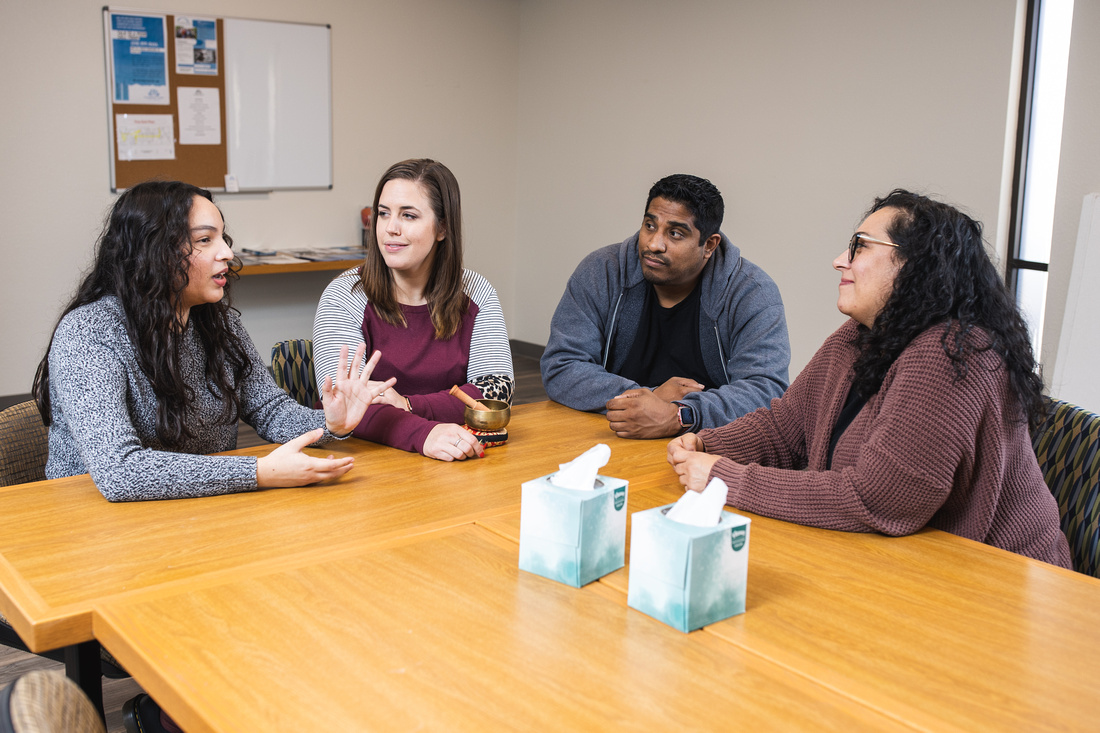NOW offers specialty services in three areas: trauma therapy, Dialectical Behavior Therapy (DBT), and Cognitive Adaptation Training (CAT) for serious mental illness. Therapists offering these services are specially trained, maintain continuing education, and keep up with relevant research findings in those areas. They are particularly qualified to work with clients who seek treatment in these areas. Just as you would visit a cardiologist for a heart problem, we recommend working with a trauma specialist if you are dealing with trauma.
Trauma Therapy
NOW clinicians treat clients dealing with trauma using evidence-based, trauma-specific treatments, including Cognitive Processing Therapy (CPT) and Prolonged Exposure (PE). For more information, please contact the trauma therapy coordinator, Austin Lemke, PsyD, by email.
Cognitive Processing Therapy (CPT) is a structured treatment for Post-traumatic Stress Disorder (PTSD). This 12- to 18-week individual therapy has been shown to reduce PTSD symptoms in over 70% of patients. CPT is provided by specially trained clinicians. The American Psychological Association Strongly Recommends CPT as a treatment for PTSD.
Prolonged Exposure (PE) is a specific type of individual cognitive behavioral therapy that teaches client with PTSD to gradually approach trauma-related memories, feelings, and situations. Treatment typically lasts 8 to 15 weeks. The American Psychological Association Strongly Recommends PE as a treatment for PTSD.
Dialectical Behavior Therapy (DBT)
DBT is a treatment for people who experience strong swings of emotion, often including anger, and who may have difficulty in relationships. These people may engage in problem behaviors such as suicidal behavior and non-suicidal self-injury (e.g., cutting, burning) and have difficulties with depression, anxiety, substance use, or eating disorders. These difficulties often relate to difficult early family experiences. The UT Health DBT Program treats only adults and primarily consists of Group Skills Training classes. For more information, please contact the DBT coordinator, Erika Jonietz,PhD, by emailing dbt@uthscsa.edu.
Cognitive Adaptation Training for serious mental illness (CAT)
CAT is an evidence-based psychosocial treatment designed to improve clients’ lives by helping them find ways around cognitive and motivational problems associated with serious mental illness. CAT interventions include environmental supports such as signs, checklists, alarms, pill containers, and organization of belongings to prompt clients to carry out helpful behaviors at home. The interventions are customized for each client based on a standardized assessment of their needs and challenges. For more information, please call the CAT coordinator, Kevin Miles, LPC, at 210-450-8082 or by email.


